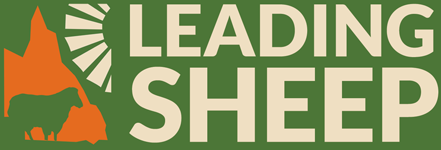Connecting producers – minds, information, growth. Best practice management information and innovations will be delivered via a range of traditional extension methods (e.g. field days and workshops) as well as online to allow access to experts and advice without leaving home. The aim of these events is to increase awareness and deliver new knowledge and skills to support practice change and improve productivity and profitability.
It aims to do this by maintaining a high level of engagement with producers in three regions across the state — south, south west and north/central west.
In each region, an extension officer and a regional coordinator work with a regional committee of producers to determine local priorities.
This ensures producers receive the latest information on industry issues, as well as advice on new practices and technologies that will lead to long-term sustainability for the industry.
Leading Sheep encourages all producers to take part in the program and increase their uptake of new technologies.
Leading Sheep is an important partnership between the Queensland Department of Agriculture and Fisheries and Australian Wool Innovation and is supported by AgForce.
Contact Us
Contact a particular person:
|
Objectives
1. Network – be an effective conduit between producers, between producers and experts, and between AWI, DAF, MLA, AgForce and producers.
• Grow the member numbers on the LS database
• Maintain efficacy of the network
• Develop staff and service provider expertise
2. Information Source – endeavour to become the go-to source of information on sheep production in Queensland.
• Improve content and ease of access to information
3. Extension – building on the network and communications to provide training opportunities that lay the foundations for change.
• Provide opportunities for producers to learn
• Lay foundations for change
Priorities
- Reproduction
- In particular: condition score management, predator control, weaning, preferential
management of single and twin bearing ewes, individual advice for businesses,
genetics, animal health and adapting relevant research to Queensland.
- In particular: condition score management, predator control, weaning, preferential
- Pasture
- In particular: understand stocking rates and long-term carrying capacity, benefits
of spelling pastures and conservative grazing, the use of tools such as forage
budgets/grazing charts/decision dates and nutritional application of pasture
management.
- In particular: understand stocking rates and long-term carrying capacity, benefits
- Wool
- In particular: woolgrower understanding of wool aspects of the enterprise and
supply chain, marketing opportunities and the benefits of running a wool enterprise
- In particular: woolgrower understanding of wool aspects of the enterprise and
- Business
- In particular: simple and consistent records (including production records), simple
tools for management applications such as stock schedules with DSE
ratings/gross margin/cost of production/return on investment (and definitions), key
performance indicators, and a succession and business mindset.
- In particular: simple and consistent records (including production records), simple
- Other priorities (in order): predators, technology, drought, networking, marketing,
infrastructure, good season management, labour and high priority/regional issues.
Key aspects of Leading Sheep include:
• Three Regional Committees, each with a Regional Coordinator, to identify and prioritise local industry needs.
• A Project Advisory Panel (PAP) to provide broad industry and strategic assessment of the project and its achievements.
• Maintaining the LS database.
• Networking activities such as addressing enquiries, developing project staff and service providers and supporting producer connections.
Communications will continue to be a focus to both provide information and promote activities, including:
• regular communications, such as Around the Camp (monthly e-Newsletter and podcast), and Leading Sheep Facebook and Twitter.
• resource development on priority areas to ensure comprehensive information is available, such as fact sheets, videos, case studies and infographics.
• investigating opportunities to improve information access, potentially through a website review and resource development to adapt existing information to Queensland conditions and gathering productivity/benchmarking data on the Queensland sheep industry.
Leading Sheep will continue to deliver relevant events and information focussing on:
• events, groups and webinars that promote change
• networking and social aspects to events
• follow up support and resources
• producer presenters and successes
• demonstrations, tools and information resources
• collaboration with existing projects, activities and producer demonstration sites, in particular across the New South Wales border and with Farm Business Resilience Program and Future Drought Fund in Queensland.
